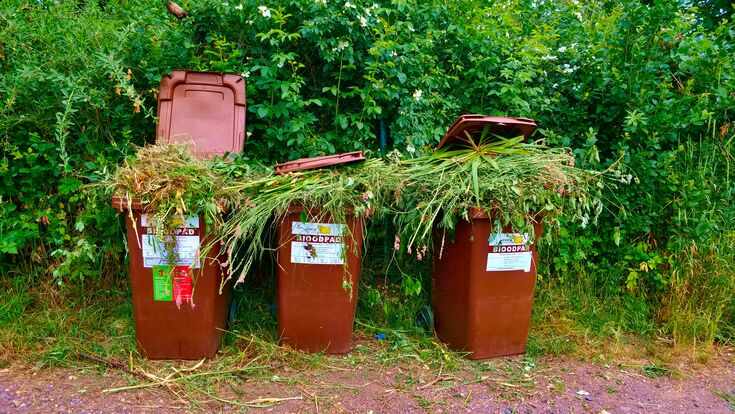Organic waste : EU struggles to enforce biowaste separation mandate — But LIFE BIOBEST shows the way forward

Despite a binding EU mandate requiring the separate collection of biowaste across all member states, recent figures reveal a slow and uneven rollout of this critical environmental policy. As of early 2025, only 26% of food waste across the EU is being separately collected, leaving a staggering 75% of organic waste still ending up in landfills or incinerators.
This lag in implementation has been attributed to a combination of limited municipal infrastructure, inconsistent policy enforcement, and a lack of public awareness and participation. The data, published by Zero Waste Europe, underscores the urgent need for more coordinated investments in collection systems, composting facilities, and public education campaigns.
Despite these challenges, there are signs of progress. Several forward-thinking municipalities have launched successful biowaste composting programs, offering a glimpse into what a fully implemented system could achieve. These localized efforts demonstrate the potential to recover valuable organic material and significantly reduce landfill reliance—if scaled across the EU.
However, several municipalities and EU-funded initiatives are providing blueprints for successful implementation—most notably through the LIFE BIOBEST project.
Catalonia improves collection rates and compost quality
In Catalonia, Spain, local governments are demonstrating that tailored, community-focused strategies can significantly improve collection rates and compost quality. For example:
- Berguedà County has adopted a three-times-per-week collection model using biodegradable bags, supported by robust communication efforts and household biowaste kits.
- Ripollet and Sant Cugat have implemented specialised collection systems designed for high-density urban areas, showing flexibility in service design.
- Mataró has rolled out door-to-door collection in industrial zones, achieving impurity levels below 15% despite limited coverage.
- In the Metropolitan Area of Barcelona, smart bins are improving the quality of collected biowaste, although overall collection volumes have yet to increase.
These efforts not only show what’s possible with targeted investment and public education, but also highlight the importance of adapting systems to local contexts.
LIFE BIOBEST: A strategic Response
Central to the EU’s long-term vision is the LIFE BIOBEST project, launched in 2023 under the EU LIFE Programme and coordinated by the ENT Foundation. The project is focused on mainstreaming the best practices in biowaste collection and processing across Europe.
Key objectives of LIFE BIOBEST include:
- Identifying and disseminating proven collection models, such as those seen in Catalonia;
- Developing EU-wide guidance and decision-support tools to help municipalities improve performance;
- Establishing premium standards for input materials to composting and anaerobic digestion, aiming to reduce sorting losses and ensure high-quality outputs.
The project is already yielding insights into how municipalities can reduce sorting losses from 15% to 10%, improve the purity of biowaste streams, and support the production of high-quality compost and digestate—contributing to soil health and closing the loop in the bioeconomy. The final conference of the will be held on June 5th in Brussels.
Better biowaste management for the future
As the EU pushes toward its 2030 climate and waste reduction goals, projects like LIFE BIOBEST—and the local success stories it supports—are likely to play a crucial role. The challenge now lies in scaling these examples, addressing funding disparities across regions, and ensuring that biowaste is no longer viewed as a disposal problem but as a valuable resource.

